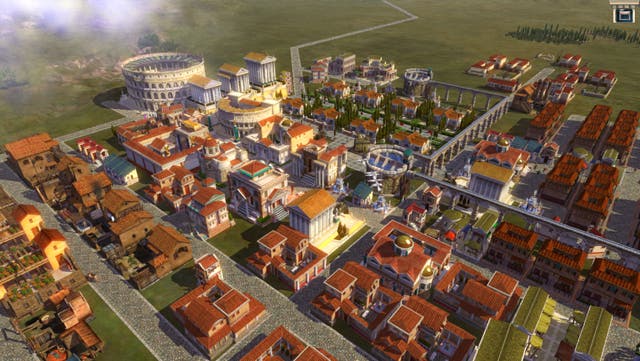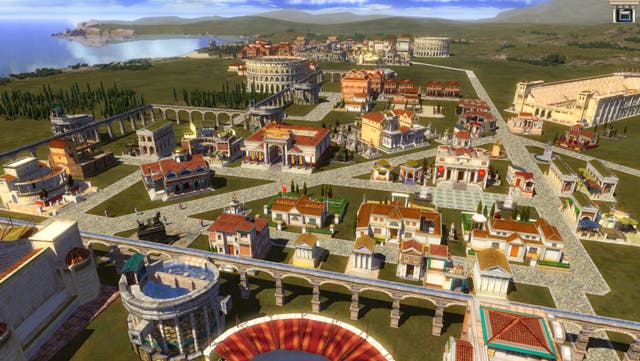Caesar IV
Pre-E3: The emperor strikes back.
Roamin' Romans
If you like, Leier says, "You can extend the roads and try to make a better road network to these services. That creates the conflict of, can I use the space for a road? Can I stick the healthcare, the entertainment, the markets and everything else near all of the homes that need them?
"That, with the limited budget and resources you have, forms the core of the building game. You're a Roman governor; you've got to manage your budget, get the people happy, keep them happy, then get Caesar happy by achieving your goal. And that's what Caesar IV is about."
There are other factors to deal with though, such as the new weather effects. If your city is in Northern Europe, chances are it'll rain a fair bit, which means there's less chance of it catching fire and burning to the ground - but more chance of disease spreading quickly. If you're in Africa you'll have sandstorms to deal with, and so on. It makes you wonder why the Romans didn't just stay in Tuscany, really.
There's also a bit of combat to be getting on with, but Leier says it's not likely to take up too much of your time. "You'll be able to build up some armies and fortifications for your city, and then Barbarians or Greeks or Carthaginians will attack them, but that's kind of just the payoff for building up the army and the defences in the first place.
"So yes, there is combat, but we don't try to make that a big part of the game - it's really an extra thing, because it's a building and a management game at its roots."
Building blocks

The emphasis on construction rather than destruction is one of the game's key advantages, according to Leier: "The core gameplay is building the city. It's a constructive game, unlike so many of the other real-time strategy games out there that are about fighting and destroying. We think that's a great feature."
Of course, building cities has been the core of all the Caesar games - so what are the key differences in Caesar IV?
"Well for one, there's eight years of technology development... [The previous games] were all 2D and much smaller, so that's a big change. Another is the smart people. Before, they just randomly wandered around; here, they're doing very specific things. We've also improved the interface to make it easier to use - the feedback's clearer, the advisors have more information, it's easier to organise.
"Actually we've got a lot of similarities. We've got the same composer who worked on Caesar III and Pharaoh, for example, who's composed another 60 to 80 minutes of original music. So really, other than what I said before, there's not a lot of big differences - but we've taken everything from Caesar III and made it better."

So how long till we find out just how much better, exactly? Well, the game's due out around September-October time, and according to Leier, it's coming along very nicely: "We're in really good shape. We've got a couple more systems to complete, then it's just polishing, testing and getting it out.
"We're very excited because we've done so many city-building games with a 2D engine. This was a great opportunity to make the game we've always wanted to make, because we could use a 3D engine, make the people a lot smarter, and just make the world more real; and at the same time, get the gameplay we wanted."
Caesar IV is facing some stiff competition, though - fellow city builder CivCity: Rome is out this summer, and so far it's looking rather good. So who will rise and who will fall? Just have to wait and see...
